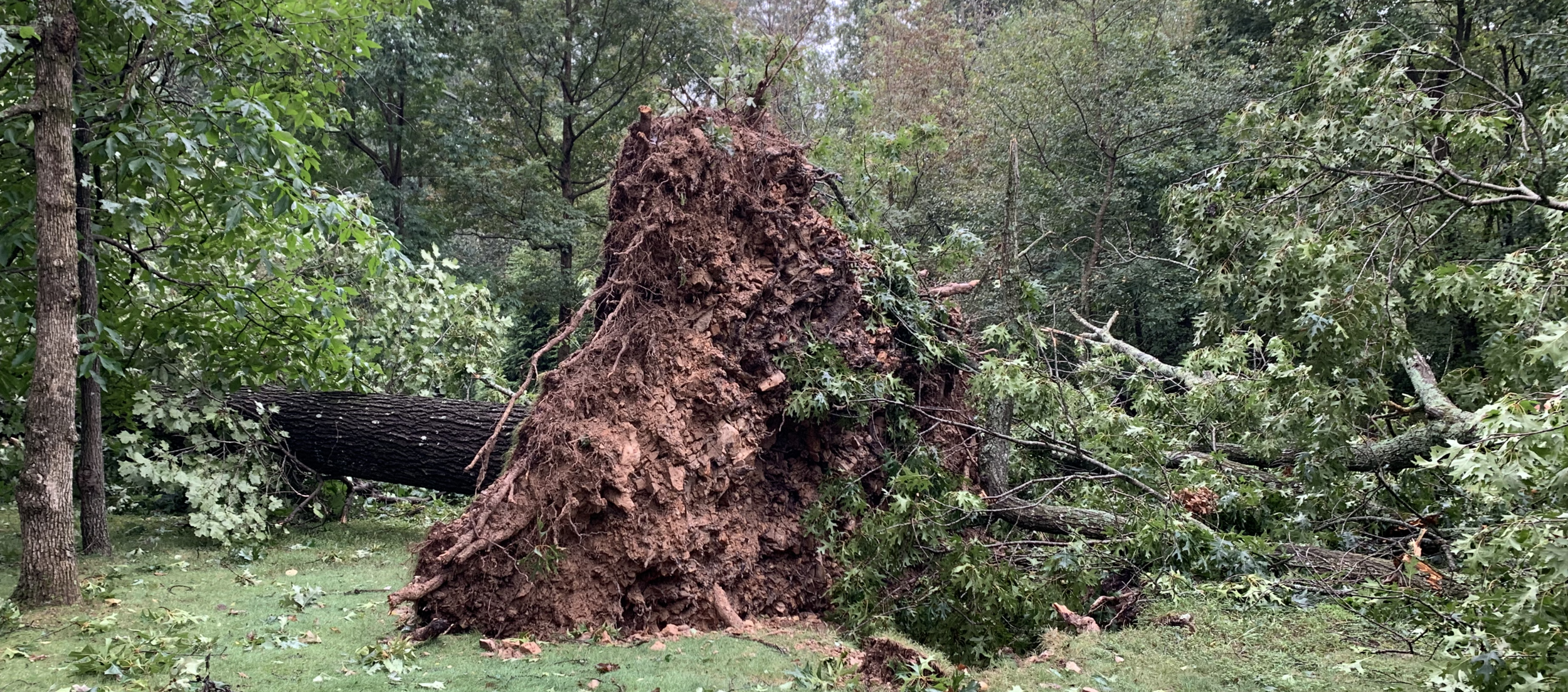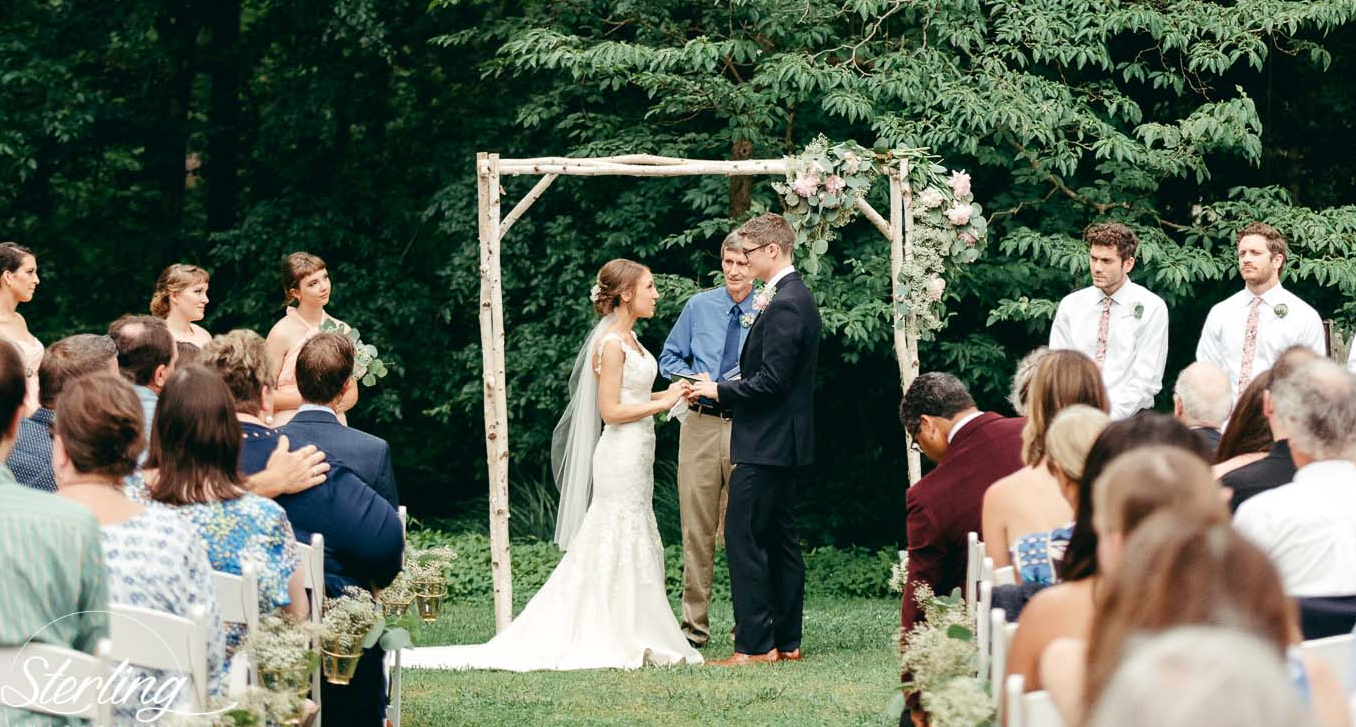After the Trees Fell
The storm arrived late that summer night, unpredicted and unprecedented. We never saw it coming and after it was gone, we couldn’t believe what our eyes took in.
One tree crew manager called it Armageddon. A reference to the end of the world, and indeed, it felt like the end of a part of mine.
At least the end of my world of trees.
I’ve always been an ardent fan of trees, especially large, old ones. Early in my life, such things existed only in books and movies. Growing up on the southern Kansas plains, the only “trees” we knew were overgrown bushy weeds and aging evergreens bordering our fields in government-planted shelterbelts.
So, my list of must-haves for a forever home in a neighboring state included towering oaks, sycamores, and maples. Once we discovered the wooded property, a rare find in a suburban setting, we bought it hours after walking its magical backyard. The years that followed included birthday parties and barbeques, impromptu teenage horseshoes, alfresco church meetings, fire pit s’mores, fireworks shenanigans, and even my daughter’s dream wedding under the enchanting canopy.
It was our family’s happy place.
But like grown children leaving the nest, those beloved trees gradually began to disappear. Some trees gone due to age, a few because of disease, still others following ice storms. Losing one every couple of years didn’t seem that painful, or noticeable.
But this time the loss was deeper, and much more evident.
Walking sleepy-eyed into the kitchen overlooking our backyard, I felt a pit widen in my stomach as I took in frame after frame of ineffable damage. How did we not hear this during the night?
Seven 100-foot oaks had fallen in our backyard.
The saturated ground and shallow roots were no match for a staunch August straight-line wind. One succumbed to the weight and then dominoed into the others. Collapsing one by one, our yard became a graveyard for trees older than anyone in my family.
It was a sobering scene.
My shocked, task-oriented mind jumped to, What next? I quickly realized that even after the mess was finally cleaned up, nothing would seem quite the way it used to be. Or should be.
I stood stunned, leaning on the kitchen sink, and I thought about calling my parents. But I realized I couldn’t. I tended to forget. They had so recently died, within four months of each other. Another even bigger loss. With their sudden passing, my husband and I have recently found ourselves the oldest generation on either side of our family. It is a daunting place to be. In so many ways we often feel like kids ourselves, and when there is danger or difficulty, we still wonder when the grown-ups are going to arrive.
Seeing my trees down, I experienced that feeling again.
I wanted to believe that if they had stood for over a century, those majestic trees would last forever, or surely outlive me. Same with my mama and my daddy. Though I’m certain they saw this passage coming, somehow I just didn’t. I’ve never known life without them.
Experiencing so much grief over the trees, things seemed out of order in my heart. After all, they were only trees. The toppling giants missed our house and our neighbors, falling just inches and feet from causing much deeper heartache.
I zipped a jacket over my pajamas, then ventured out into my private warzone, stepping over branches larger than most trees in our city park, examining upended root balls the size of my son’s car. But in the middle of all the damage, something surprised me, and sparked hope. A dozen or so smaller, more delicate trees beneath the oaks that I hadn’t noticed before. With the larger, older trees gone, perhaps now the younger trees would get sunlight and root space to thrive.
I considered the notion. While our parents are with us, they provide protection, shelter, boundaries. Once they are gone, they provide something else - opportunity. Responsibility becomes ours and we must step into the light and grow.
But can any of us ever be ready?
Then a chapter from high school biology, unwittingly filed decades ago in my long-term memory, resurfaced: Old growth forests support healthier seedlings.
Older trees prepare the younger trees for the transition.
An important determinant of seedling success is the density of the canopy above it - older, larger trees that have survived the journey to the top of the forest. This canopy must provide just the right amount of sunlight, not too much and not too little.
And even those older trees that didn’t survive as long play their part. Seedlings that germinate on logs provided by their deceased ancestors have a better chance of survival. The logs not only provide essential nutrients, but also retain moisture where shallow seedling roots can access it.
My husband’s parents have been gone for nearly twenty years. But their foundation of work ethic, generosity, and commitment benefitted us, nourishing our seedling roots as we raised our young family. Now, just as with those shaded younger trees, I am surviving an empty nest because of the glorious canopy my daddy and my mama provided for me during their longer lives: courage, faith, resilience, compassion.
Sitting down on one of the now-horizontal trunks, it suddenly made sense why all of this reminded me of my parents. Not just because of the grief that gripped me. It was something even deeper.
I felt an unexpected kinship with the younger trees now taking center stage in our yard. We shared a bond. Neither of us were comfortable with the sudden loss of the older trees, although it seemed the natural order of things.
But we were both equipped for the job of continuing their legacy, by the very giants that had sustained us in our early lives.
—Lori
Lori Ann Wood lives in beautiful Bentonville, Arkansas, with her husband, the love of her life whom she found in 9thgrade. She is mom to three great young adults, one amazing son-in-law, and a miniature dachshund named Pearl. Lori Ann currently serves as founding leader of the Parenting Education Ministry at the church of Christ in Bentonville. She also serves as WomenHeart Champion Community Educator for Arkansas and American Heart Association Ambassador. Lori Ann’s work has been published in numerous print and online venues, including The Christian Century, Just Between Us, The Joyful Life, Bella Grace, Pepperdine University Press, and yahoo.com. Having discovered a serious heart condition almost too late, Lori Ann writes to encourage others to find joy in the divine detours of life. Read more from her at loriannwood.com.


